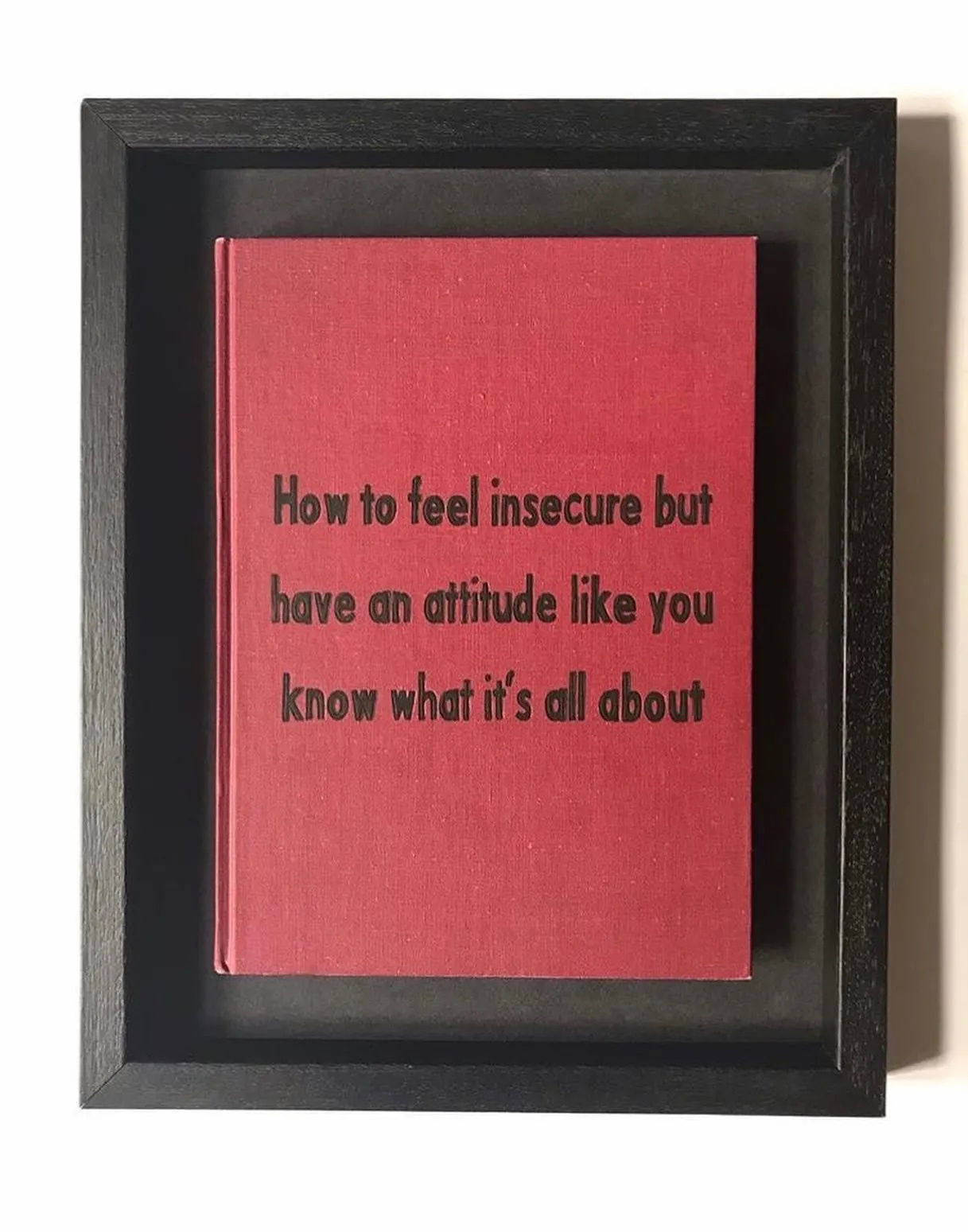In the vibrant city of Copenhagen, artist Johan Deckmann transforms ordinary book covers into striking platforms for his poignant, text-based art. Deckmann, a seasoned psychotherapist as well as an artist, cleverly marries the realms of mental health and visual narrative, creating works that resonate deeply with contemporary issues and personal introspections. Born in 1976, his unique approach to art was influenced by his dual careers in therapy and music composition, where he realized the profound impact of words—both spoken and sung. This understanding led him to use book covers as his canvas, turning each into a thought-provoking piece that invites viewers to delve into a world of fictional yet familiar narratives.

Deckmann’s choice of medium is particularly intriguing. By selecting book covers for his art, he engages with the tactile memories and intellectual engagements of reading, repurposing these associations for artistic expression. The text on these covers, often set in a distinctive font inspired by a 1950s poster from his grandfather, evokes a sense of nostalgia and continuity. Each piece serves as a cognitive trigger, as Deckmann explains, aiming to initiate a mental dialogue where the viewer becomes an imaginative participant, akin to reading a compelling book that shifts perception with each page.
The themes explored in Deckmann’s works are as diverse as they are profound, spanning life, death, sanity, relationships, and the surreal interplay between self and society. His background in psychotherapy enriches his art, enabling him to weave complex psychological and existential themes into simple yet striking visual statements. Often infused with humor, these works challenge the viewer to reflect on their own experiences and societal norms. Titles like ‘How to turn your stupidity into a sexy attitude’ and ‘How to spend your life with the wrong persons because you are afraid to be alone’ exemplify his ability to blend wit with wisdom, prompting not only a chuckle but also a moment of self-reflection.

Deckmann’s philosophy on the role of art and words as therapeutic tools is central to his work. He views his creations as a hybrid of painting, poetry, and psychology, each capable of invoking a therapeutic transformation similar to that experienced in a clinical setting. This therapeutic potential of art, to Deckmann, is akin to collective healing, where words serve as medicine that can soothe, inspire, and provoke thought. His art, therefore, is not just to be seen but to be felt, offering a form of passive therapy through active engagement with text and context.

As contemporary art continues to evolve, Deckmann’s work remains relevant by reflecting current artistic and social trends while also pushing boundaries into new forms and spaces. His explorations extend beyond book covers to walls and other objects, showcasing his willingness to challenge conventional art forms and engage with a broader canvas. This adaptability not only highlights his inventive spirit but also his commitment to reaching audiences in novel and meaningful ways.
Reflecting on his artistic journey, Deckmann recalls the moment he realized that books would become his inspiration and medium. His experiences as a psychotherapist and a lyricist allowed him to appreciate the condensed power of words. Each book he selects at antique stores carries its own history, which he repurposes with new narratives that spark the imagination of his audience. This process, according to Deckmann, is like composing a song, where every word plays a crucial note in the larger symphony of the viewer's experience.
Deckmann’s approach to his titles and the irony embedded within them reflects a profound understanding of human nature. By playing with common self-help tropes, his work critiques the simplistic solutions often peddled by the self-help industry, instead offering more nuanced reflections on personal and societal challenges. This satirical edge is crucial for engaging his audience in a deeper dialogue about authenticity and self-awareness.

Through his innovative use of text and reimagined book covers, Johan Deckmann has crafted a niche in the art world that resonates across cultural and psychological boundaries. His work is not just seen but experienced, offering insights that linger long after the initial encounter. As Deckmann continues to explore the limits of text as art, he invites us all to reconsider the power of words and the role of art in reflecting and reshaping our understanding of the world.
Discover Johan Deckmann art for sale at Guy Hepner and contact our teams via info@guyhepner.com for current availabilities.

